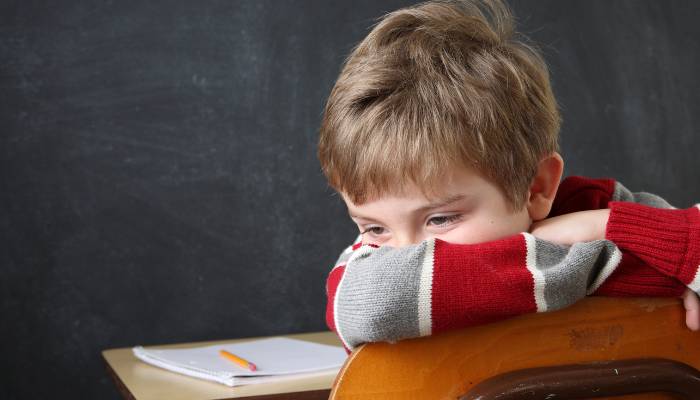
Sleep deprivation is a serious issue that plagues many children with attention deficit hyperactivity disorder. Not getting the recommended amount of sleep — eight to 10 hours per night for school-aged kids — can drastically and immediately affect behavior, emotions, and concentration. Before you research the best over the counter meds for ADHD child, it’s helpful to know as much as possible about what you are battling. Here are a few ways sleep deprivation can impact kids with ADHD:
Negatively Impacts Attention
Page Contents
With inadequate or poor-quality sleep, a child with ADHD can have difficulty concentrating in school or at work. A lack of focus can lead to difficulty sitting still, listening, retaining information, and completing in-class assignments. This combination ultimately leads to poor overall grades.
Impairs Executive Functioning
Executive functioning refers to skills associated with cognitive abilities such as organization and planning. Lack of adequate sleep can drastically affect children who struggle with executive function. Sleep deprivation often produces a delayed response time when undertaking tasks and a challenging time starting tasks due to an inability to remember what needs to be done and in what order. Also, children with sleep issues typically have difficulty regulating their emotions.
Causes Irritability & Moodiness
Sleep deprivation has been linked to mental health challenges, including increased feelings of depression, anxiety and irritability. Unexplained fatigue and excessive worry may also worsen without proper restorative sleep. One way to begin is to check out Brillia for children reviews to ease these symptoms.
Increases the Risk of Injury
Contrary to what you might think, children deprived of quality shut-eye tend to be more active than their well-rested peers. This can leave them more prone to accidents, including falls. Sports injuries while playing outside or engaging in physical activities indoors are more common for sleep-deprived kids. Parents and caregivers need to monitor their child’s activity level during times of sleeplessness. This is especially the case for teenagers who are driving. If insomnia occurs routinely, consider having a backup plan for your child’s commute.
Decreases Academic Performance
Poor quality sleep can impair learning capabilities and make it difficult for students with ADHD to perform well academically in all subjects, even ones in which they would typically excel. This struggle is due to the heightened levels of distraction that occur during these episodes. Difficulty staying focused during lectures and problems completing homework will negatively affect a child’s performance. Doctors and teachers recommend that parents or guardians concerned about this phenomenon pay close attention to their child’s sleep patterns for a while. Also, research helpful over-the-counter medications and read the side effects of Brillia. By following these steps, everyone can be better prepared to approach the problem with actionable steps toward improving academic performance at school, at home, or in an online learning environment.
Understanding how much quality shut-eye is necessary for your child’s health is paramount, especially when considering the risks associated with ADHD. Paying close attention to potential signs of overstimulation and other problems associated with inadequate rest can help ensure a safe journey toward success inside and outside the classroom walls.

Lifebing is driven by an unrelenting passion for promoting health and well-being, our team is wholly committed to curating exceptional content and immersive experiences.
